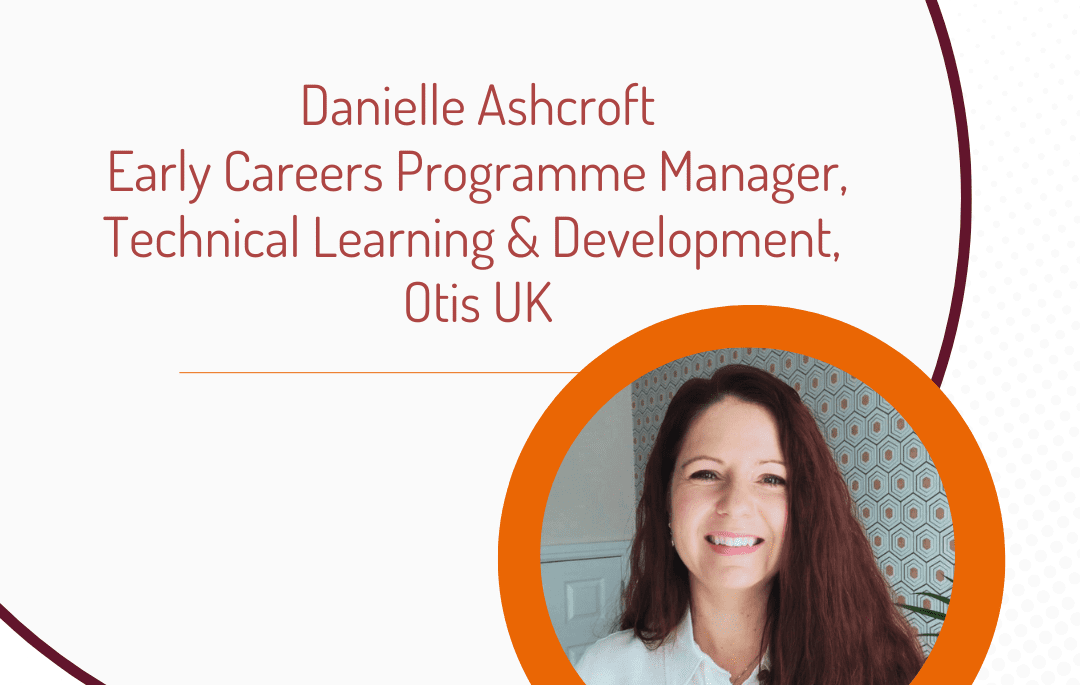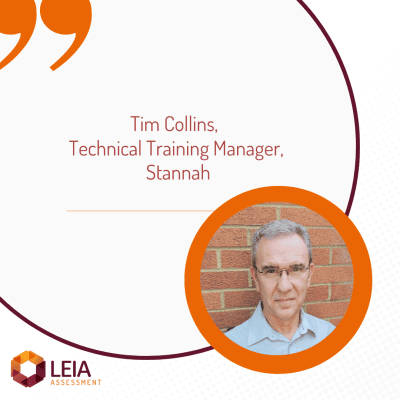As Early Careers Programme Manager, Technical Learning & Development, Danielle Ashcroft runs the apprenticeship, traineeship and adult learning programmes at Otis UK. She helps transform enthusiastic learners into skilled lift and escalator engineers through a comprehensive three-year apprenticeship programme that blends practical workplace experience with rigorous technical training at the company’s dedicated centre. She tells us more about the Otis apprenticeship scheme.
What motivated your business to start an apprenticeship scheme and what benefits has it brought?
Otis UK has a long history of apprenticeships. We have long-serving senior engineers who started out as apprentices when they began their careers.
Apprenticeships are incredibly valuable to us. We can train our engineers from scratch, ensuring they live and breathe our standards and values. In addition, by working alongside experienced colleagues, knowledge transfer flows naturally.
How do you structure your apprenticeship programme to ensure both practical skills and theoretical knowledge are developed?
We are proud to have an incredibly comprehensive programme. This balances learning in the field with technical training in our flagship training centre, plus academic courses and an NVQ. It is essential our apprentices understand the reasons behind what we do, rather than simply learning by imitation. Support is provided throughout the programme, and additional training is provided if skills gaps become apparent.
What do you look for when recruiting new apprentices?
For us, the key attributes are a genuine interest in mechanics and electrical engineering. We welcome candidates who enjoy problem solving and are keen to learn. We are open to those who can carry themselves in a professional environment and respect our strict safety standards.
Can you tell us about the support system you have in place for apprentices (including training and mentoring)?
We have a dedicated Early Careers Programme Manager, who supports all apprentices throughout the programme. There is also a technical training team, a training provider assessor, an apprentice representative, plus experienced engineers and line managers.
How has working with LEIA Assessment helped ensure your apprentices meet industry standards? What have you found useful in terms of resources?
Working with LEIA as our End Point Assessment Organisation, allows us to maintain consistency and compliance during assessment. Otis has its own checks, to ensure all apprentices complete with a solid knowledge and skills base. It’s reassuring these are reflected in LEIA’s assessment criteria.
Guidance documents and templates have proved useful for the apprentices, and the platform ACE360 enables a useful snapshot of the status of the group.
What impact have your apprentices had on your business and company culture?
Our apprentices are incredibly popular. Colleagues are always excited to greet the group and our continued investment in the programme demonstrates a commitment to our future. Seeing completed apprentices transition into the business is rewarding, especially when you see their thirst for continued development. It’s encouraging to hear their aspirations, based on colleagues and departments they’ve been exposed to during the programme.
How do you measure the success of your apprenticeship programme, what outcomes have been achieved so far?
Successful completion of the programme, seamless talent succession and the ability to promote apprenticeships as part of contract bids are all ways we see tangible benefits from the programme.
Have you faced any challenges implementing and running the programme?
I think the biggest challenge we have is that the lift and escalator industry is largely hidden. It’s not an industry most candidates immediately consider when looking at engineering apprenticeships. We must work twice as hard to showcase the roles, industry and career prospects we have available.
How do you see your apprenticeship scheme evolving? Are there opportunities for growth?
We’ve already expanded our apprenticeship programme into other areas of the business, which has been a huge success. These have included:
- Business Administration (level 3)
- Quality Practitioner (level 4)
- Team Leader Supervisor (level 3)
- Surveying Technician (Level 4)
- Senior People Professional (Level 7)
We’re keen to continue this growth into more areas of the business, to maximise our use of the levy while supporting internal development.
What would you say to other employers considering starting an apprenticeship scheme? What advice would you give them?
It’s essential to align apprenticeships to your overarching talent plan, so relevant roles are available at the end of the programme. It’s also important to reassess entry requirements over time, to make sure you’re hiring those with the right aptitude for your business. Start small and expand your programme once you’ve found your feet.
Interested in an apprenticeship? Take a look at the Lift Careers site for details on companies hiring apprentices.




